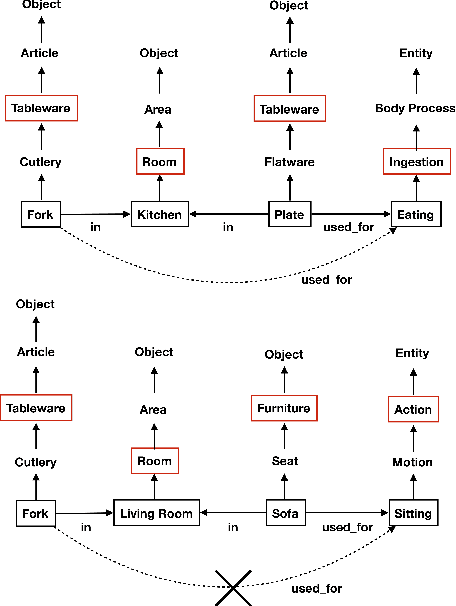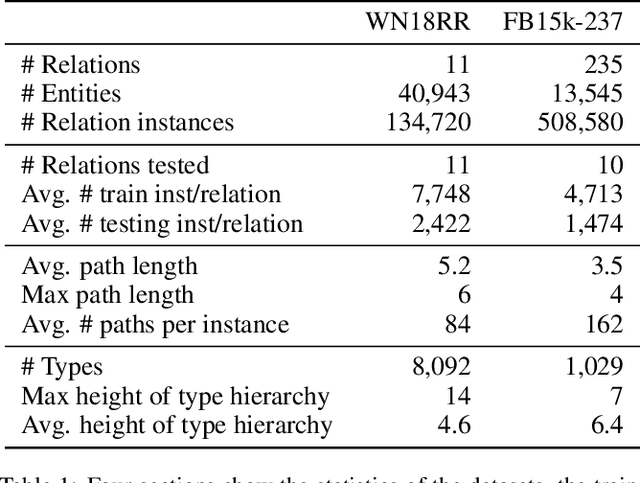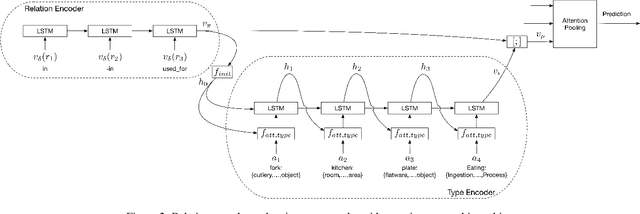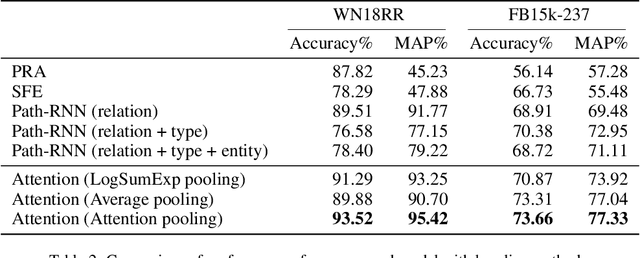Path Ranking with Attention to Type Hierarchies
Paper and Code
May 26, 2019



The knowledge base completion problem is the problem of inferring missing information from existing facts in knowledge bases. Path-ranking based methods use sequences of relations as general patterns of paths for prediction. However, these patterns usually lack accuracy because they are generic and can often apply to widely varying scenarios. We leverage type hierarchies of entities to create a new class of path patterns that are both discriminative and generalizable. Then we propose an attention-based RNN model, which can be trained end-to-end, to discover the new path patterns most suitable for the data. Experiments conducted on two benchmark knowledge base completion datasets demonstrate that the proposed model outperforms existing methods by a statistically significant margin. Our quantitative analysis of the path patterns shows that they balance between generalization and discrimination.
 Add to Chrome
Add to Chrome Add to Firefox
Add to Firefox Add to Edge
Add to Edge